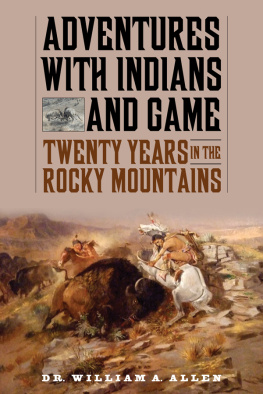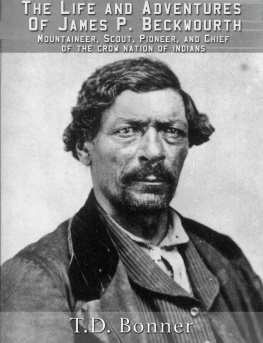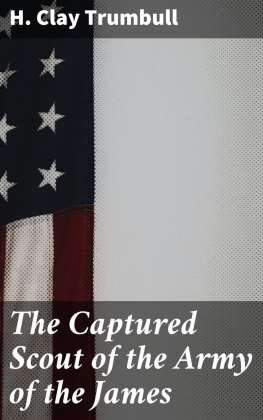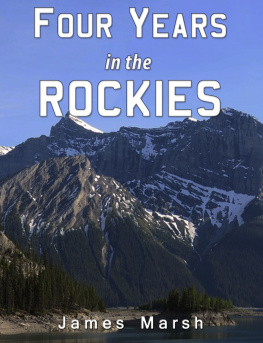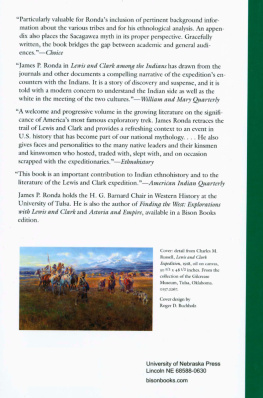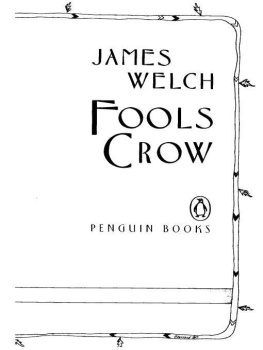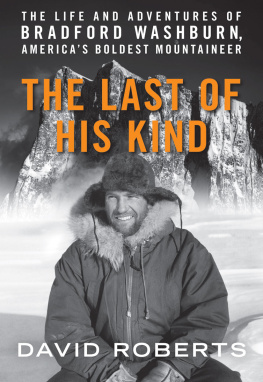THE LIFE AND ADVENTURES OF JAMES P. BECKWOURTH
Mountaineer, Scout, and Pioneer and Chief of the Crow Nation of Indians.
Written from his own Dictation by T. D. Bonner
First published by Harper & Brothers in 1856.
Copyrigh t James P. Beckwourth.
This edition published in 2016.
Table of Contents
Preface
BURIED amid the sublime passes of the Sierra Nevada are old men, who, when children, strayed away from our crowded settlements, and, gradually moving farther and farther from civilization, have in time become domiciliated among the wild beasts and wilder savages have lived scores of years whetting their intellects in the constant struggle for self-preservation; whose only pleasurable excitement was found in facing danger; whose only repose was to recuperate, preparatory to participating in new and thrilling adventures. Such men, whose simple tale would pale the imaginative creations of our most popular fictionists, sink into their obscure graves unnoticed and unknown. Indian warriors, whose bravery and self-devotion find no parallels in the preserved traditions of all history, end their career on the war-path, sing in triumph their death-song, and become silent, leaving no impression on the intellectual world.
Among the many men who have distinguished themselves as mountaineers, traders, chiefs of great Indian nations, and as early pioneers in the settlement of our Pacific coast, is James P. Beckwourth, whose varied and startling personal adventures would have found no record but for the accident of meeting with a wanderer in the mountains of California, interested in the man, and, patiently listening to his story, proceeded, as it fell from his lips, to put it upon paper. This autobiography was thus produced, and was the result of some months labor in the winter of 1854-55. In prosecuting the task, the author has in no instance departed from the story of the narrator, but it was taken down literally as it was from day to day related. Beckwourth kept no journal, and, of course, relied upon his memory alone; consequently dates are often wanting, which it was impossible to give with accuracy when recurring to events transpiring in the course of very many years. Beckwourth is personally known to thousands of people living on both sides of the mountains, and also, from his service under the United States government, has enjoyed the acquaintance of many officers of the United States Army, who have been stationed in Florida, Mexico, and California. In his long residence with the Indians he adopted their habits, and was in every respect conformed to their ways: the consequence was, from his great courage and superior mental endowments, he rose rapidly in their estimation, and finally became their chief. As an Indian, therefore, he speaks of their customs, and describes their characteristics; and probably, from his autobiography, we have more interesting particulars than were ever before given of the aborigines.
Beckwourth, after ten thousand adventures, finally became involved in the stream that set toward the Pacific, and, almost unconsciously, he established a home in one of the pleasant valleys that border on Feather River. Discovering a pass in the mountains that greatly facilitated emigrants in reaching California, his house became a stopping-place for the weary and dispirited among them, and no doubt the associations thus presented have done much to efface his natural disposition to wander and seek excitement among the Indian tribes.
In person he is of medium height, of strong muscular power, quick of apprehension, and, for a man of his years, very active. From his neck is suspended a perforated bullet, with a large oblong bead each side of it, secured by a thread of sinew: this amulet is just as he wore it while chief among the Crows. With the exception of this, he has now assumed the usual costume of civilized life, and, in his occasional visits to San Francisco, vies with many prominent residents in the dress and manners of the refined gentleman.
It is unnecessary to speak of the natural superiority of his mind: his autobiography everywhere displays it. His sagacity in determining what would please the Indians has never been surpassed; for on the most trying occasions, where hundreds of others would have fallen victims to circumstances, he escaped. His courage is of the highest order, and probably no man ever lived who has met with more personal adventure involving danger to life, though in this respect he is not an exception to all mountaineers and hunters who early engaged in the fur trade and faced the perils of an unknown wilderness.
CHAPTER I.
Birth-place and Childhood.Removal to St. Louis.
I WAS born in Fredericksburg, Virginia, on the 26th of April, 1798. My fathers family consisted of thirteen children, seven sons and six daughters. I was the third child, having one sister and one brother older than myself.
My father had been an officer in the Revolutionary War, and had held a majors commission. He served throughout that glorious struggle which
Raised the dignity of man,
And taught him to be free.
I well recollect, when a small boy, the frequent meetings of the old patriots at my fathers house, who would sit down and relate the different battles in which they had taken part during those days that tried mens souls. According to the custom of those days, their meetings were occasionally enlivened with some good old peach brandy; the same kind, I presume, as that with which the old Tory treated MDonald when he delivered his splendid charger Selim to him for presentation to Colonel Tarleton, which circumstance was very frequently spoken of by the old soldiers.
Often during these reminiscences every eye would dim, and tears course down the checks of the old veterans, as they thus fought their battles oer again, and recalled their sufferings during the struggles they had passed through.
My youthful mind was vividly impressed with the stirring scenes depicted by those old soldiers; but time and subsequent hardship have obliterated most of their narratives from my memory. One incident I recollect, however, related by my father, when he formed one of a storming party in the attack on Stony Point made under General Wayne.
When I was but about seven or eight years of age, my father removed to St. Louis, Missouri, taking with him all his family and twenty-two negroes. He selected a section of land between the forks of the Mississippi and Missouri Rivers, twelve miles below St. Charles, which is to this day known as Beckwourths Settlement. At this early period of our history (1805-6) the whole region of country around was a howling wilderness, inhabited only by wild beasts and merciless savages. St. Louis, at that time, was but a small town, its inhabitants consisting almost wholly of French and Spanish settlers, who were engaged in trafficking with the Indians the commodities of civilization, such as fire - water , beads, blankets, arms, ammunition, &c., for peltry.
For protection against the Indians, who were at that time very troublesome and treacherous, it became necessary for the whites to construct block-houses at convenient distances. These block-houses were built by the united exertions of the settlers, who began to gather from all quarters since the Jefferson Purchase had been effected from the French government. The settlers or inhabitants of four adjoining sections would unite and build a block-house in the centre of their possessions, so that in case of alarm they could all repair to it as a place of refuge from the savages.
It was necessary to keep a constant guard on the plantations, and while one portion of the men were at work, the others, with their arms, were on the alert watching the wily Indian. Those days are still fresh in my memory, and it was then that I received, young as I was, the rudiments of my knowledge of the Indian character, which has been of such inestimable value to me in my subsequent adventures among them.
Next page

